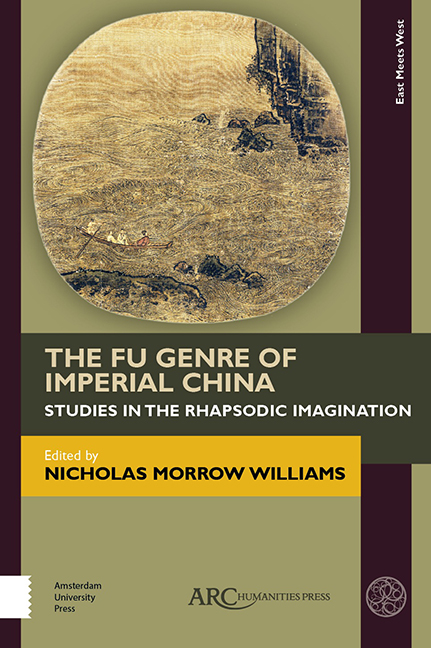6 - The Metaphysical Rhapsody of the Six Dynasties
Published online by Cambridge University Press: 20 November 2020
Summary
THE “METAPHYSICAL LYRIC” (xuanyan shi 玄言詩) is a longstanding crux in Chinese literary history. Though little of this verse survives, it occupies a major place in the early narratives of poetic history provided by Shi pin 詩品 and Wenxin diaolong 文心雕龍, among others, though primarily in the guise of a cautionary tale: its pale and abstruse style is presented as the disastrous outcome of neglecting realism and passion for doctrine and abstraction. At the same time, however, since xuanyan shi introduced a metaphysical foundation to pentasyllabic verse, it prepared the way for grander compositions and deeper resonances in poetry generally. Though little enough of the verse survives to require rehabilitation, at least we can recognize how the genre was part of a cultural shift indispensable to the achievement of early Southern Dynasties poets, like Tao Yuanming 陶淵明 (365– 427?) and Xie Lingyun 謝靈運 (385– 433).
Or so the topic of metaphysical verse appears within the conventional framework of modern literary histories, in which xuanyan is significant only insofar as it affects the development of pentasyllabic verse (and it was from this perspective that I discussed the topic in a previous article). Reconsidered in relation to the history of Chinese poetry as a whole and not neglecting the development of the fu genre, however, the whole issue is transformed in such a way as to clarify the biases and limitations of twentieth-century scholarship on Chinese poetry. For the proper relation of the metaphysical lyric to its fu counterpart was by no means neglected by literary historians closer in time to these historical events, such as Liu Xie 劉勰 (ca. 465– ca. 521):
Midway through the dynasty studies of the Ultimate gained prestige, and were widely popular east of the Yangtze [i.e., during the Eastern Jin period]. In the surplus energy left over from the these discussions, the trend developed into a literary form. Thus while the age was exceptionally fraught with disorder, its words and ideas were calm and placid. Their lyrics uniformly conveyed the message of the Scribe below the Pillars [Laozi], while their rhapsodies were glosses and commentaries to the Sage of the Lacquer Garden [Zhuangzi].
- Type
- Chapter
- Information
- The Fu Genre of Imperial ChinaStudies in the Rhapsodic Imagination, pp. 113 - 140Publisher: Amsterdam University PressPrint publication year: 2019



